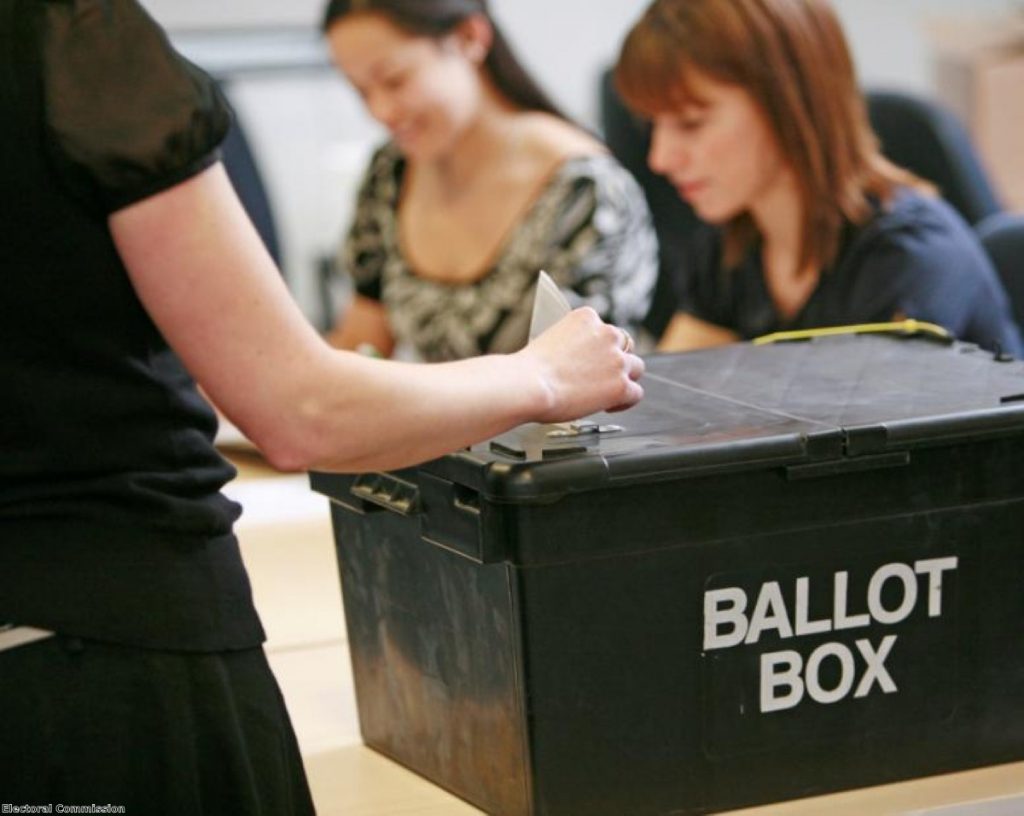Voters are disappearing from the electoral roll – so why won’t the watchdog act?
Labour fears that coalition reforms will effectively disenfranchise millions of people have been rebuffed by the elections watchdog.
A terse exchange of letters, seen by Politics.co.uk, reveals the Electoral Commission is not prepared to accelerate its analysis of the deeply troubling figures emerging this week about declining voter registration levels.
Shadow constitution minister Stephen Twigg said the watchdog, which is tasked with protecting the way British elections are run, was in danger of doing "too little too late" if it does not act sooner.
At present the Electoral Commission is not planning on publishing a headline figure about how many people have fallen off the electoral register since the transition to individual electoral registration began until February – despite local authorities releasing data for their areas this week.
"This is not good enough," Twigg wrote.
"The election will be a matter of weeks away once the Electoral Commission have published your findings and there will be limited time to act.
"If, as we suspect, the situation as it stands is seriously affecting the register, then the Electoral Commission will be seen to have done far too little, too late."
Early indications suggest registration rates among student populations have dropped from 100% to around ten per cent, while those living in residential homes, like the elderly and the homeless, are also seeing dramatic drops.

In Liverpool 20,000 people have disappeared from the register in the last year. In Manchester the local government electorate has dropped from 381,000 in February to 368,000. In Oxford the electoral roll has shrunk by 10.7% in the last year.
If figures from Liverpool are extrapolated nationally that will leave two million more people disappearing from the register by the time of the 2015 general election. This comes in addition to the 7.5 million people already missing from the register.
The Electoral Commission was criticised recently by MPs on the Commons' political and constitutional reform select committee for not being more ambitious about attempting to reduce the number of missing voters.
And now, despite these alarming snapshot figures the Electoral Commission's chief executive, Jenny Watson, has rebuffed Twigg's concerns.
"I do not consider that it is 'complacent' to take the time to do this work properly," she replied.
"Parliament deserves nothing less than the most accurate picture that we can give."
Read our partnership pack for everything you need to know about getting involved in voter registration http://t.co/6eGMEMlliC
— Electoral Commission (@ElectoralCommUK) December 3, 2014
The watchdog's focus is on the biggest question-mark about the transition from household to individual registration – the option ministers have of bringing forward the final switchover from 2016 to 2015.
If Labour gets into power in next year's election that is unlikely to happen, but the Conservatives seem intent on bringing forward the end to the transition.
That, in the Electoral Commission's view, is more important than providing even basic information about the current crisis.
It points out that ministers have sought to limit the damage of the reform by 'carrying over' all those who have dropped off the register automatically. This effective exemption will be stripped away as early as next year, leaving many more without a vote for the critical local elections of 2016.
But even without this, as Twigg noted in a reply to Watson's letter, the 2015 general election is being seriously affected.
The shadow minister wrote:
"The worrying trend, from the figures we have seen, is a sharp decrease in these numbers when compared with the last household survey. We can assume that people are moving, or passing away, at the same rate as previously. However, because of the new system of registering, and the lack of a household survey in 2014, additions to the register, in particular those that have 'come of age', are not occurring at the same rate. Therefore, there is a gaping gap, as new electors aren't registering at the same level as before."
Earlier this week deputy prime minister Nick Clegg announced the government would provide an extra £10 million of funding to register missing students.
But Watson's letter, dated December 3rd, stated the watchdog had not received any confirmation "as to when and how" the extra financial support would be provided.
The ongoing row appears technical but has deeply partisan overtones. Those most likely to be affected by the transition are more likely to be Labour voters. If Tory ministers move the end of the process forward to 2015 that will affect the boundary reviews for the 2020 general election – shrinking the number of Labour-supporting constituencies and giving extra weight to those more likely to vote Conservative.





-01.png)